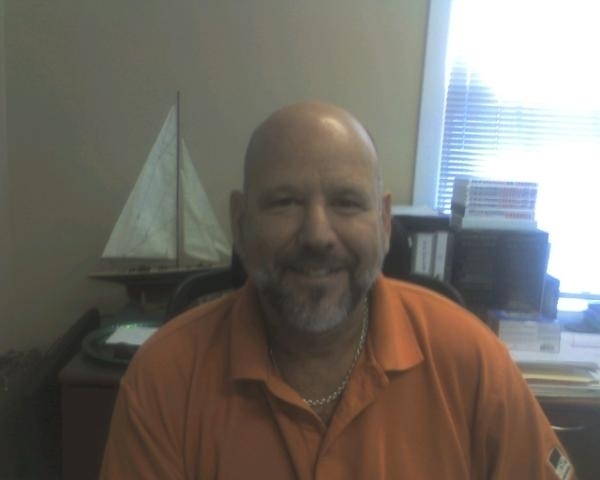 / " title=""PRETTY MUCH any small or medium-sized business has some kind of professional help working with their system," said Tom Zarrella, vice president of business development at Technology Advisory Group in Warwick. /"/>
/ " title=""PRETTY MUCH any small or medium-sized business has some kind of professional help working with their system," said Tom Zarrella, vice president of business development at Technology Advisory Group in Warwick. /"/>/
Tom Zarrella, vice president of business development at Technology Advisory Group in Warwick, talked with Providence Business News recently about how his company has grown, the key to good IT support and the recent spate of denial-of-service attacks.
PBN: What do you do at Technology Advisory Group?
ZARRELLA: Basically, we provide computer network support services for small businesses in the region. We provide the support – as if we were their IT department – on an outsourced basis to keep them running efficiently. As vice president of business development, I’m responsible for the growth of the company from a financial standpoint – I wear the sales and marketing hats.
PBN: You’ve had six straight years of strong growth. What do you attribute that to?
ZARRELLA: It’s actually probably pretty boring, but we just did it the old-fashioned way. The biggest thing we did is five or six years ago, we went out and surveyed our customers. We did not ask “How are we doing?” but “What’s important to you, whoever would be providing this service to you? What is it you would want them to be or do?”
And they came back and they give us answers. Interesting enough, their answers were pretty simple. They wanted somebody to do the job technically correctly. They wanted somebody who could communicate what it was that we were doing – to translate it so they understood. Not just to say, yeah, the computer guy came out, but to say, here’s what he did and hopefully it’s fixed. And lastly, they told us they wanted somebody who was reliable. They wanted the basics.
As usual, things are never as complicated as people try to make them. These are just very basic things that are very important to them, so we said, let’s not get fancy.
PBN: When you take over IT work for an organization, what is the most common issue or inefficiency you find?
ZARRELLA: Ten years ago, when we acquired new clients, it was usually either a startup or they were using a friend or whatever – they didn’t have anybody before, so we were first. In today’s world, that’s no the case. Pretty much any small or medium-sized business has some kind of professional help working with their system.
What we usually find is not with the system itself, it’s more around the company that was providing their service was just not meeting one of those very basic needs we just talked about. They were not communicating. We work very closely with clients – probably more closely than any other professional consultant that they would work with, whether that be an accountant, a lawyer, a business consultant – we work with people daily or weekly. So their trust and confidence in that relationship is very important.
PBN: Is there any time a small or medium-sized company would want to have their own IT staff, or do you think every business of that size can outsource?
ZARRELLA: In today’s world, where computers are so important to people’s businesses, you just can’t be down. So one of the things we do that’s probably a little bit different, and addresses the issue of whether you should have your own internal staff, is we actually provide a complete IT department to our clients. What does that mean? That means we have a person who acts as their IT manager, or their [chief information officer], who is looking at the business and talking to the business owner, and talking about, just like if you had your own IT department, what should we be doing differently? How should we be approaching this issue? … You also get a network administrator and a remote support help desk proactive patching service all built in.
So with that in mind, the answer would be no. A company shouldn’t have their own, because it would be very difficult for them to manage that whole process cost effectively. The biggest problem is people always think they’re going to get an IT person for way less than it actually costs, so it becomes an issue for them.
PBN: Denial-of-service attacks were in the news last week, with big names like Twitter and Facebook getting targeted. Are DNS attacks a problem for the small businesses you serve, or are they more limited to big firms?
ZARRELLA: Unfortunately, all these types of malicious attacks – whether they’re denial-of-service, malware, spyware – are a huge problem. People sometimes say, why do people waste their time doing this sort of thing? They do this, unfortunately, because it has become lucrative. I read recently that the actual value of revenue that is being achieved by hackers, spammers and the like has now exceeded that of organized crime as a whole. I don’t know what it was in Twitter’s case – whether it was a hostage situation or something, I don’t know and wouldn’t want to speculate.
But denial-of-service attacks happen to small firms as well as large firms. We have a solution that blocks denial-of-service attacks and we recommend it to all our clients. It really is an ongoing battle of good guy, bad guy. It really is. Are they winning? I would say there are occasions, like last summer, when there was a particularly bad virus outbreak, where I would say they were ahead. But it’s a constant cat-and-mouse game, battling back and forth. •












